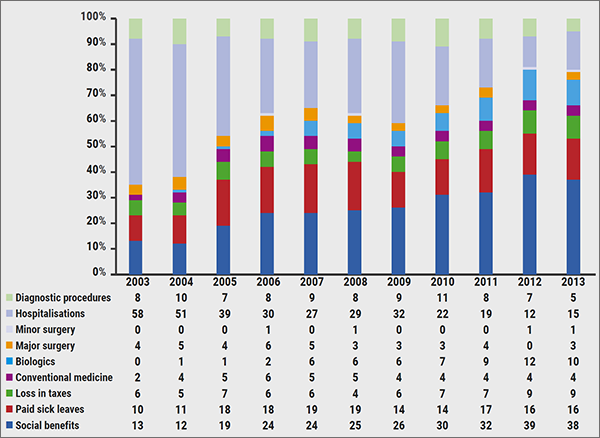Patients with IBD, including those on biologic treatment, appear to have an uneventful course during the SARS-CoV-2 pandemic, but the rate of exposure of these patients to SARS-CoV-2 remains unknown.
Dr. Lorenzo Norsa and colleagues at Papa Giovanni XXIII Hospital, in Bergamo, assessed the seroprevalence of COVID-19 among all 103 adult and pediatric patients with IBD undergoing biologic therapy at their center during the Italian COVID-19 outbreak.
All symptoms suggestive of SARS-CoV-2 infection reported by these patients were mild, and none required hospitalization for COVID-19.
Of the 90 patients who underwent serologic testing, 19 (21%) were positive for IgG, IgM, or both, the authors report in Gastroenterology.
Eleven of these 19 patients reported no symptoms during the study period, and none of the seropositive patients were in the pediatric age group.
There was no significant difference in terms of overall or age-stratified seroprevalence between these patients and a control group of healthcare personnel.
In multivariate analyses, male sex was associated with a lower rate of positive serology, whereas older age was associated with an increased risk of positive serology.
Contrary to earlier reports of nonadherence to biologic treatment during the pandemic, only one patient in this group delayed the infusion because of fear of attending the hospital during the pandemic.
"The high prevalence of IBD patients having an asymptomatic course following SARS-CoV-2 infection is a matter of concern when it comes to schedule hospital admissions for infusions, follow-up visits, or endoscopy, in regions hit by SARS-CoV-2, and suggests the need of preadmission screening tests, in order to prevent intrahospital dispersal of the virus," the authors conclude.
Dr. Norsa could not be reached for comment.
By Reuters Staff
SOURCE: https://bit.ly/2Z0btVz Gastroenterology, online August 26, 2020.
Posted on
Previous Article
« ECG findings can help manage adults with congenital heart disease Next Article
Limited evidence supports escalation of therapy for acute asthma exacerbations in kids »
« ECG findings can help manage adults with congenital heart disease Next Article
Limited evidence supports escalation of therapy for acute asthma exacerbations in kids »
Related Articles
October 9, 2020
IBS symptoms common in patients with IBD in remission

May 9, 2019
The costs and benefits of biologicals
April 12, 2022
Mirikizumab efficacious for active ulcerative colitis
© 2024 Medicom Medical Publishers. All rights reserved. Terms and Conditions | Privacy Policy

